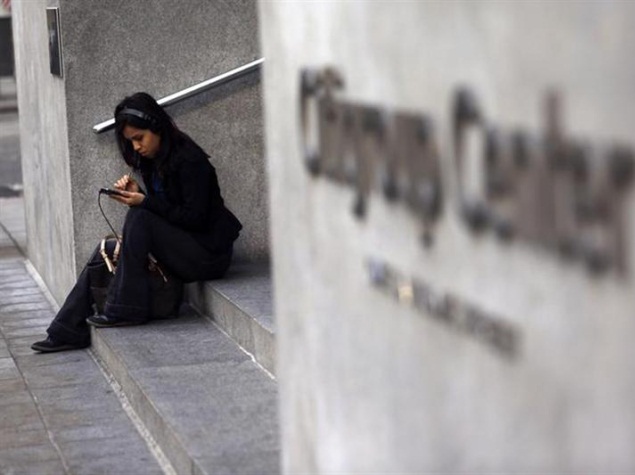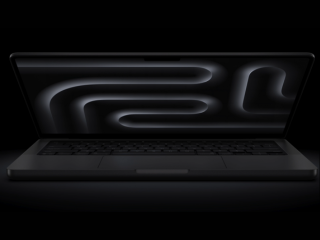- Home
- Telecom
- Telecom News
- Court Sides With US in Cell Tracking Records Case
Court Sides With US in Cell-Tracking Records Case

The Justice Department does not have to turn over information on cases involving warrantless cellphone tracking if the cases ended without a defendant's conviction, a divided U.S. appeals court ruled Friday in upholding privacy protections for people acquitted of crimes.
The ruling came in a public records lawsuit brought by the American Civil Liberties Union, which had requested information on federal cases in which prosecutors had obtained cellphone tracking data without a warrant to track a user's whereabouts.
The U.S. Court of Appeals for the District of Columbia Circuit had previously held that the Justice Department was obligated under the Freedom of Information Act to disclose case names and docket numbers for warrantless cellphone tracking prosecutions that ended with a conviction. But in a 2-1 decision Friday, a three-judge panel of the court said defendants who have been acquitted or who have had charges against them dropped enjoy extra privacy protections that outweigh the public benefit in disclosing that information.
"While this attention would have been warranted at the time of indictment, now that these defendants have been acquitted or had the relevant charges dismissed they have a significant and justified interest in avoiding additional and unnecessary publicity," Judge David Tatel wrote, adding that a person acquitted of financial fraud looking to rebuild his life "might be especially dismayed" to learn of the information's release.
Though the appeal centered on a small number of cases, the dispute nonetheless unfolded against the backdrop of ever-advancing law enforcement technologies and the ongoing debate over privacy protections.
"Once a person has been publicly indicted, and that information is easily available on the Internet, it's just unrealistic to say that the person has an ongoing interest in the privacy of his public indictment" that outweighs the public's right to know what happened, said Arthur Spitzer, the legal director of the ACLU of Washington, who said he was disappointed by the decision.
The Justice Department, in responding to the ACLU lawsuit, identified 229 prosecutions since 2001 in which a judge had approved the government's request to obtain cellphone tracking data without making a finding of probable cause. The department refused to turn the list over, but after an earlier appeals court decision, ultimately released docket information for 214 cases that resulted in guilty pleas or convictions.
But the ACLU also pressed for the release of case information on defendants who were indicted but not convicted. Since the organization didn't challenge the Justice Department's authority to withhold information on sealed cases, the only cases at issue in the appeal were six that ended with acquittal or dropped charges.
Judge Janice Rogers Brown dissented from the majority opinion, saying the six disputed cases already exist in the public domain and can easily be accessed through a Google search or other means.
"An individual who is indicted and tried has no privacy interest that can protect the public record of prosecution from disclosure - even if the ultimate outcome was acquittal or dismissal," she wrote.
For details of the latest launches and news from Samsung, Xiaomi, Realme, OnePlus, Oppo and other companies at the Mobile World Congress in Barcelona, visit our MWC 2026 hub.
Related Stories
- Samsung Galaxy Unpacked 2026
- iPhone 17 Pro Max
- ChatGPT
- iOS 26
- Laptop Under 50000
- Smartwatch Under 10000
- Apple Vision Pro
- Oneplus 12
- OnePlus Nord CE 3 Lite 5G
- iPhone 13
- Xiaomi 14 Pro
- Oppo Find N3
- Tecno Spark Go (2023)
- Realme V30
- Best Phones Under 25000
- Samsung Galaxy S24 Series
- Cryptocurrency
- iQoo 12
- Samsung Galaxy S24 Ultra
- Giottus
- Samsung Galaxy Z Flip 5
- Apple 'Scary Fast'
- Housefull 5
- GoPro Hero 12 Black Review
- Invincible Season 2
- JioGlass
- HD Ready TV
- Latest Mobile Phones
- Compare Phones
- Apple iPhone 17e
- AI+ Pulse 2
- Motorola Razr Fold
- Honor Magic V6
- Leica Leitzphone
- Samsung Galaxy S26+
- Samsung Galaxy S26 Ultra
- Samsung Galaxy S26
- MacBook Pro 16-Inch (M5 Max, 2026)
- MacBook Pro 16-Inch (M5 Pro, 2026)
- Apple iPad Air 13-Inch (2026) Wi-Fi + Cellular
- Apple iPad Air 13-Inch (2026) Wi-Fi
- Huawei Watch GT Runner 2
- Amazfit Active 3 Premium
- Xiaomi QLED TV X Pro 75
- Haier H5E Series
- Asus ROG Ally
- Nintendo Switch Lite
- Haier 1.6 Ton 5 Star Inverter Split AC (HSU19G-MZAID5BN-INV)
- Haier 1.6 Ton 5 Star Inverter Split AC (HSU19G-MZAIM5BN-INV)

















